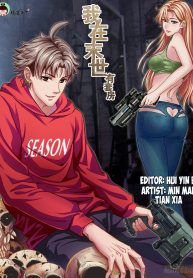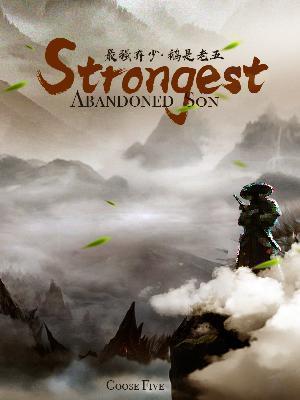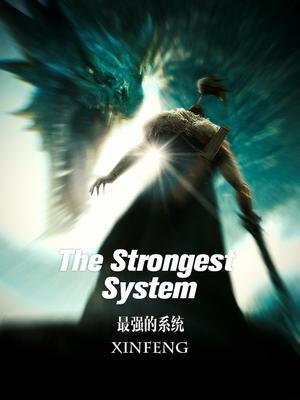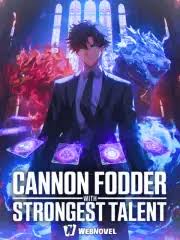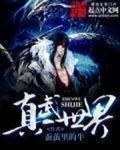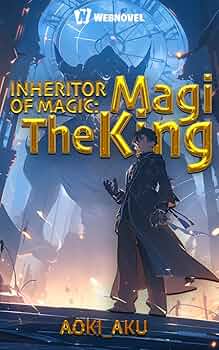The Story in 3 Sentences
An ordinary, recently fired man named Jiang Chen stumbles upon a mysterious device that grants him access to a nuclear-ravaged future, a desolate wasteland he sees not as a hellscape but as a treasure trove of abandoned technology and resources.
He leverages his unique ability to shuttle between the modern world and this post-apocalyptic realm, building a personal empire by trading modern goods for futuristic tech, amassing wealth, power, and a sprawling harem of women who become key figures in his growing influence.
His journey evolves from simple survival and personal enrichment into a grand, interdimensional saga where he reshapes global politics, founds a new world order called the Earth Federation, and ultimately confronts existential threats to humanity itself.
Why It Stands Out
1. The Ultimate Power Fantasy, Unapologetically Executed
This novel is a masterclass in wish fulfillment, delivering exactly what its target audience craves: a nobody transformed into an unstoppable titan. Jiang Chen’s journey from a down-on-his-luck office worker to a godlike figure who commands armies, owns spacefaring technology, and has beautiful, powerful women fawning over him is pure, unadulterated escapism. It doesn’t pretend to be high literature; it’s a rollercoaster of power, wealth, and conquest that revels in its own absurdity, making it incredibly addictive for readers who want to switch off their brains and live vicariously through the MC’s outrageous successes.
2. A Fallout Homage That Doesn’t Bother Hiding Its Inspirations
It stands out for its shameless, almost loving, appropriation of the Fallout universe’s core aesthetic and lore. From the irradiated wastelands and Vault-Tec-esque bunkers to the Deathclaws and Pip-Boy analogues, the novel wears its influences on its sleeve. For fans of the game series, it’s a fascinating, if legally dubious, “what if” scenario transplanted into a Chinese webnovel context. This direct borrowing creates an instantly familiar and richly detailed backdrop, allowing the story to dive straight into its unique premise of interdimensional trade without spending chapters on tedious world-building.
3. The Empire Builder Who Redefines “Harem Protagonist”
While harem elements are common, Jiang Chen’s arc transcends the typical trope. His relationships, however problematic, are intrinsically tied to his empire’s growth. His wives and allies aren’t just romantic trophies; they become generals, scientists, and political leaders within the Earth Federation he constructs. The novel’s audacity lies in scaling the harem protagonist’s journey from bedroom antics to galactic-scale geopolitics, making his personal life a cornerstone of a much larger, world-altering narrative.
Characters That Leave a Mark
There’s Sun Jiao – the cunning, sharp-tongued survivor from the wasteland who blackmails Jiang Chen into feeding her, evolving from a desperate scavenger into his first wife and a formidable pillar of his burgeoning empire, her initial malice giving way to fierce loyalty.
You’ll meet Xia Shiyu, who fired Jiang Chen from his job in the modern world, only to later become one of his most powerful allies and wives in the apocalypse, her cold, emotionless demeanor masking a complex character who plays a crucial role in his political machinations.
And Natasha? They’re the one who brings a different kind of strength and perspective to the group, a foreign element whose inclusion in the harem adds to the story’s global, and often controversial, scope as Jiang Chen’s influence spreads across the ruined world.
The Flaws Fans Debate
The novel’s pervasive and often jarring racist and culturally insensitive stereotypes, used as cheap plot devices or for crude humor, have alienated a significant portion of its potential audience.
The protagonist, Jiang Chen, is frequently criticized for being a shallow, unlikable character whose primary motivations are greed and lust, lacking the depth or redeeming qualities that typically make a power fantasy protagonist compelling.
The story’s pacing is inconsistent, with long, tedious stretches of filler content, particularly lengthy and gratuitous sex scenes that add little to the plot, bogging down the otherwise fast-moving narrative of empire-building.
Must-Experience Arcs
Ch. 1–50: The Wasteland Hustle – Jiang Chen’s initial forays into the apocalypse, where he meets Sun Jiao, learns the rules of survival, and makes his first, game-changing trades, establishing the core loop of the story.
Ch. 300–500: The Rise of the New Atlantis Cooperative – The arc where Jiang Chen transitions from a lone trader to a nation-builder, founding his first major settlement, gathering key allies, and clashing with established wasteland powers, solidifying his status as a major player.
Ch. 1200–1609: The Earth Federation and the Final War – The endgame where Jiang Chen’s influence reshapes the entire planet, culminating in the formation of a global government and a desperate, large-scale conflict against an alien or extra-dimensional threat, bringing his interdimensional empire to its zenith.
Killer Quotes
“Since I saved you, then under the rule, you are now my slave.” Jiang Chen smiled devilishly.
“C-type battery, food, and crystals are all fine. Though personally, I prefer food.” Sun Jiao responded.
“Your man’s a trash and a half.” Jiang Chen stood up for her. “He’s not my man.” Xia Shiyu replied with the same emotionless tone.
Cultural Impact
The novel has inspired countless memes and online discussions, particularly around its blatant similarities to the Fallout series, with fans debating whether it’s a clever homage or outright plagiarism.
Despite its controversies, it boasts a massive, dedicated fanbase, evidenced by its millions of views on platforms like Webnovel and Qidian, making it one of the most-read completed sci-fi web novels.
It has become a cultural touchstone in certain online circles, often cited as the quintessential example of a specific, over-the-top subgenre of Chinese web fiction that prioritizes power fantasy and harem elements above all else.
Final Verdict
Start Here If You Want:
A wildly entertaining, no-holds-barred power fantasy that lets you live out the ultimate “what if” scenario of unlimited wealth and influence.
A fast-paced, action-packed story with a unique premise of interdimensional trade that keeps the plot constantly moving and evolving.
A massive, completed epic that offers hundreds of hours of reading, perfect for bingeing without the fear of an unresolved cliffhanger.
Study If You Love:
Analyzing the mechanics of wish-fulfillment narratives and how they tap into universal desires for power, control, and romantic conquest.
Exploring the phenomenon of cultural adaptation and appropriation in web fiction, using its direct parallels to Western media like Fallout as a case study.
Understanding the commercial success drivers of the Chinese webnovel industry, where tropes like the harem and the “weak-to-strong” protagonist dominate the market.
Avoid If You Prefer:
Nuanced, morally complex protagonists; Jiang Chen’s often selfish and hedonistic behavior can be grating.
Stories that avoid offensive stereotypes and handle cultural or religious themes with sensitivity and respect.
Tightly edited narratives without filler; the novel’s length and pacing can feel bloated and self-indulgent.
